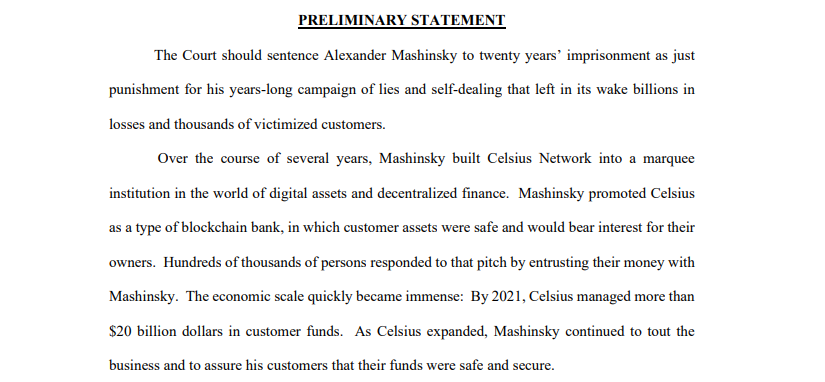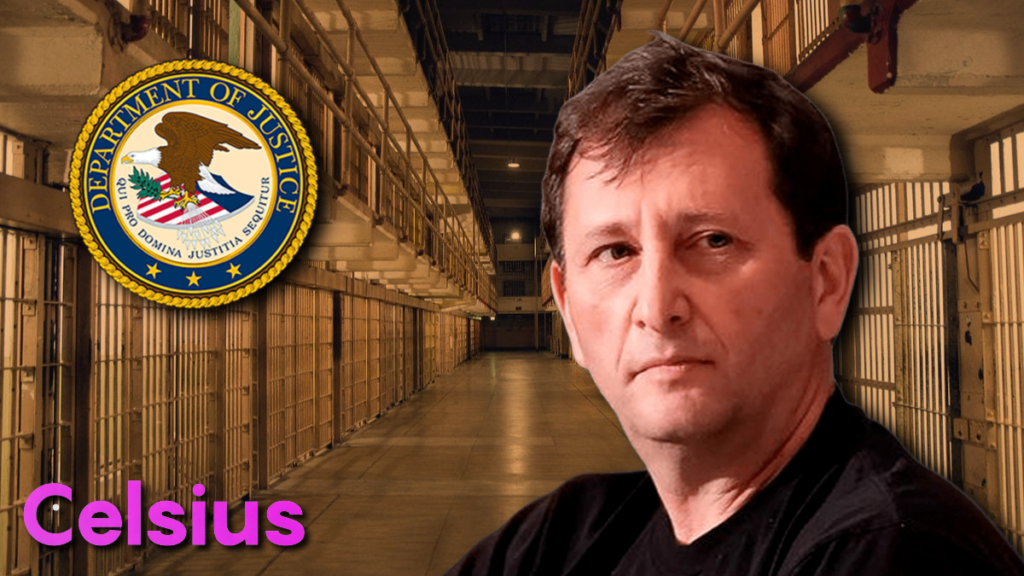TL;DR
- The U.S. Department of Justice is requesting a 20-year prison sentence for former Celsius CEO Alex Mashinsky over intentional financial fraud.
- Mashinsky admitted to manipulating the CEL token and causing over $550 million in losses while personally pocketing $48 million.
- Affected investors are demanding a harsh sentence after losing more than $4.7 billion when Celsius froze withdrawals in 2022.
In a new chapter of accountability within the crypto world, the United States Department of Justice has asked for a 20-year prison sentence for Alex Mashinsky, founder and former CEO of Celsius Network. Accused of leading a fraudulent scheme that harmed thousands of investors across the globe, Mashinsky pleaded guilty in December 2024, admitting his role in deliberate actions that resulted in more than $550 million in losses and immense personal benefit.

Unlike other cases where market downturns justify investor losses, federal prosecutors made it clear this was not the result of poor judgment or bad luck. According to court documents, Mashinsky used client funds to artificially inflate the price of the CEL token while publicly claiming he was holding his tokens. In truth, he had sold over $48 million worth of CEL before Celsius collapsed and filed for bankruptcy in July 2022, leaving users unable to access their assets or recover savings.
Investors Speak Out From Around the Globe
Ahead of the final sentencing scheduled for May 8, the court received over 200 victim impact statements. These letters, submitted from places as diverse as Australia, Denmark, and the United States, reveal heartbreaking stories of financial ruin and emotional breakdown. Some even link suicides directly to the Celsius collapse and Mashinsky’s actions.
Despite Mashinsky’s legal team requesting a sentence of just one year, investor pressure has been intense. Comparisons to infamous figures like Bernie Madoff are common throughout the statements, with calls for a punishment that serves as a deterrent to bad actors within the crypto ecosystem and prevents similar schemes.

A Lesson for the Crypto Industry, Not a Condemnation of It
From a pro-crypto perspective, it’s vital to distinguish between failed projects due to bad leadership and the core technology itself. This case highlights the need for greater transparency but does not undermine the transformative potential of the sector. In fact, prosecuting figures like Mashinsky could mark a turning point, encouraging more professionalism and trust in the crypto space.
Meanwhile, the blockchain world continues to move forward, more mature and increasingly aware that a decentralized future must also include accountability.










